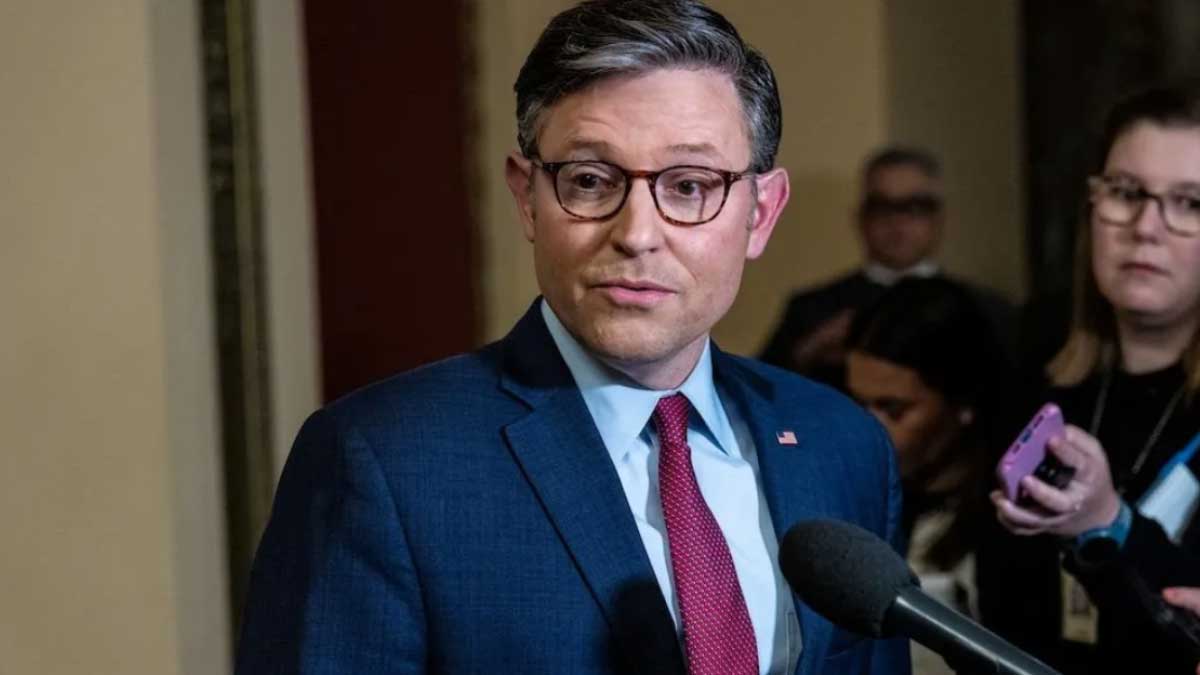- Home
- Billionaires
- Investing Newsletters
- 193CC 1000
- Article Layout 2
- Article Layout 3
- Article Layout 4
- Article Layout 5
- Article Layout 6
- Article Layout 7
- Article Layout 8
- Article Layout 9
- Article Layout 10
- Article Layout 11
- Article Layout 12
- Article Layout 13
- Article Layout 14
- Article Sidebar
- Post Format
- pages
- Archive Layouts
- Post Gallery
- Post Video Background
- Post Review
- Sponsored Post
- Leadership
- Business
- Money
- Small Business
- Innovation
- Shop
Recent Posts
House Rejects Funding, Government Shutdown Looms

As the Oct. 1 deadline approaches, the House of Representatives has taken a significant step toward a potential government shutdown by rejecting legislation aimed at continuing federal funding. The vote, which concluded with a 202-222 outcome against the proposed extension of the fiscal year 2024 spending plan through the end of March, raises alarm bells just six weeks ahead of the crucial Election Day. The bill faced stiff opposition primarily from Democrats, who were concerned about a provision that would require proof of citizenship for voter registration. This element was seen as a nod to former President Donald Trump’s unfounded claims regarding non-citizen voting and its alleged impact on electoral integrity. Notably, 14 Republicans also sided with the Democrats, citing the bill’s lack of sufficient spending cuts as a major reason for their dissent.
The future of negotiations remains uncertain, particularly regarding whether House Speaker Mike Johnson, R-La., will engage in discussions with Senate Democrats to formulate a new spending plan. Senate Majority Leader Chuck Schumer, D-N.Y., may also introduce alternative funding legislation. Johnson expressed optimism in recent statements, indicating that “thoughtful conversations” are underway, and reaffirmed a commitment to finding a resolution. However, the backdrop of this legislative standoff reveals deep-rooted complexities. Despite existing laws prohibiting non-citizens from voting in federal elections, concerns persist among some lawmakers about the integrity of the electoral process. A recent audit by Georgia’s Republican Secretary of State revealed only a handful of non-citizen voter registration attempts, none of which culminated in actual voting. Research from the libertarian Cato Institute further corroborates that evidence of non-citizen voting is insufficient to alter election outcomes significantly.
The driving force behind the legislative gridlock lies in the divided control of Congress. While Democrats hold a slim majority in the Senate, Republicans command a narrow lead in the House. This division has led to conflicting priorities, with certain factions within the GOP pushing for stringent spending cuts. Over the past year, Congress has narrowly avoided shutdowns on five occasions, primarily due to hard-right Republican lawmakers leveraging their slim majority to push their demands into the budget, often complicating negotiations. A critical moment occurred last March when Congress passed the fiscal year 2024 budget, a process that took six months longer than usual. This delay was characterized by bipartisan tension, particularly following the ouster of former GOP House Speaker Kevin McCarthy, who faced backlash from far-right members for not securing adequate spending reductions.
If no agreement is reached, the government will shut down at 12:01 a.m. on Oct. 1, when the current spending plan expires. Despite the uncertainty, leaders from both parties have signaled awareness of the potential political ramifications of a shutdown, especially in the lead-up to the elections. Senate Minority Leader Mitch McConnell, R-Ky., articulated concerns about the political fallout, suggesting that a shutdown would be “politically beyond stupid,” predicting that Republicans would bear the brunt of the blame. While Speaker Johnson has not disclosed his next steps, historical patterns suggest he may seek to negotiate with Democrats to avert a shutdown. Rep. Tom Cole, R-Okla., noted Johnson’s track record of avoiding shutdowns, asserting, “I don’t think he ever will.”
In the event of a shutdown, federal employees deemed non-essential would face immediate furloughs or be required to work without pay. Essential services such as law enforcement and some military functions would continue, but many federal courts and the Supreme Court would remain operational. Lawmakers’ paychecks would continue, while their staff members might not receive compensation during the shutdown. Historically, Congress has enacted measures to ensure essential workers, like military personnel, receive back pay after a shutdown. Past shutdowns have seen the closure of national parks, halted admissions at health institutions like the National Institutes of Health, and delayed operations at the Internal Revenue Service. Air travel could also face disruptions, as seen during the 2018-2019 shutdown when staffing shortages among TSA agents led to significant delays.
The longest government shutdown in U.S. history occurred from December 22, 2018, to January 25, 2019, lasting a staggering 34 days during the Trump administration. Most shutdowns in recent history, however, have typically lasted two weeks or less. The discourse around a potential shutdown has garnered varying reactions from political leaders. Trump has publicly urged Republicans to allow the government to shut down if their demands, particularly regarding voting laws, are not met. Meanwhile, Vice President Kamala Harris has not commented directly but is aligned with Democrats who view a shutdown as detrimental to their political prospects. President Biden has signaled his intention to veto any funding resolution that includes provisions he opposes, further complicating the negotiations. As the deadline approaches, all eyes will be on Congress, where the stakes are high, not just for federal operations but also for the political landscape leading into the 2024 elections.
Recent Posts
Categories
- 193cc Digital Assets2
- 5G1
- Aerospace & Defense44
- AI32
- Arts3
- Banking & Insurance11
- Big Data3
- Billionaires224
- Boats & Planes1
- Business304
- Careers13
- Cars & Bikes66
- CEO Network1
- CFO Network17
- CHRO Network1
- CIO Network1
- Cloud10
- CMO Network18
- Commercial Real Estate7
- Consultant1
- Consumer Tech155
- CxO1
- Cybersecurity51
- Dining1
- Diversity, Equity & Inclusion4
- Education7
- Energy8
- Enterprise Tech29
- Events11
- Fintech1
- Food & Drink2
- Franchises1
- Freelance1
- Future Of Work2
- Games135
- GIG1
- Healthcare74
- Hollywood & Entertainment154
- Houses1
- Innovation37
- Investing2
- Investing Newsletters4
- Leadership65
- Lifestyle10
- Manufacturing1
- Markets20
- Media183
- Mobile phone1
- Money13
- Personal Finance2
- Policy542
- Real Estate1
- Research6
- Retail1
- Retirement1
- Small Business1
- SportsMoney22
- Style & Beauty1
- Success Income1
- Taxes2
- Travel10
- Uncategorized6
- Vices1
- Watches & Jewelry2
- world's billionaires194
Related Articles
Carr’s FCC Nomination and Musk’s Potential Gains
President-elect Donald Trump has nominated Brendan Carr to lead the Federal Communications...
By 193cc Agency CouncilNovember 19, 2024Musk Joins Trump’s Call with Ukraine’s Zelensky
Billionaire Elon Musk played an unexpected role in a call between President-elect...
By 193cc Agency CouncilNovember 9, 2024Trump’s Day 1 Priorities: Immigration, Energy, Ukraine, Iran
Former President Donald Trump’s advisers revealed that his top priorities for the...
By 193cc Agency CouncilNovember 7, 2024Elon Musk’s Potential Role and Influence in a Trump Administration
With Donald Trump’s successful bid for re-election, the question on many minds...
By 193cc Agency CouncilNovember 7, 2024















Leave a comment